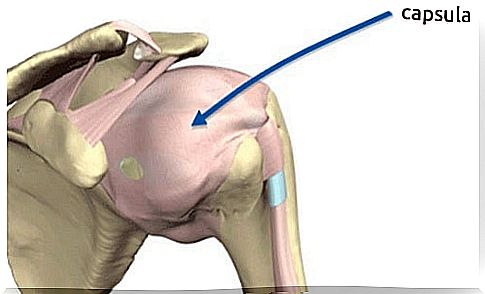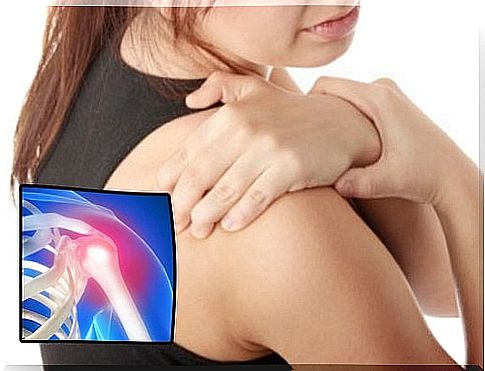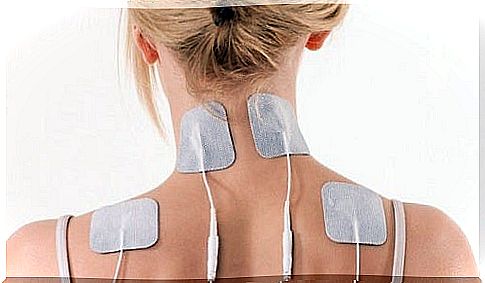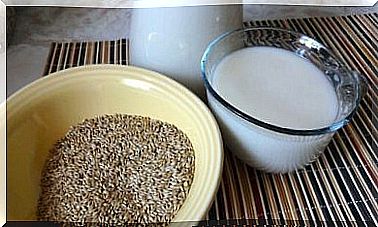What Is Capsulitis And How Is It Treated?

Capsulitis is an inflammation of the joint capsule, in other words, the entire fibrous tissue that surrounds each mobile joint, such as the fingers, shoulders, or hip. Find out in this article about capsulitis and how to treat it.
This condition is widespread especially in athletes. Those who practice basketball, handball or volleyball often end up suffering from this painful inflammation of one or more fingers. In this case, they proceed to the solution of immobilizing the affected area with a bandage.
However, in addition to sports, capsulitis is also common in older people, usually manifesting in the shoulders and hips.
Women aged 50-60 are the category of the population that suffers most often from this joint condition and in many cases, they believe that pain affects their quality of life.
What is capsulitis and what are its causes?

To better understand what capsulitis is, we must first know what the joint capsule means.
- The joint capsule is a fibrous covering that surrounds the joints in order to keep the joint surfaces in contact.
- The joint capsule is in the immediate vicinity of the cartilage and ligaments, facilitating both the protection of the joint and the movement of the limbs.
What is capsulitis and what is the cause of its appearance? When we suffer from capsulitis, it is not a dislocation or a bone or joint fracture. We can say that this is not a very serious condition, but capsulitis causes lasting physical suffering.
There are several causes of capsulitis, although in some cases the reason is unknown.
The following list contains the common causes of capsulitis:
- Traumatic injuries
- Rheumatic diseases
- Diabetes
- Thyroid problems
- Menopause (Capsulitis is a common problem in women between the ages of 50 and 60.)
What are the symptoms of capsulitis?
The pain manifests itself in the joint, the first symptom being stiffness. Without knowing why, we suddenly have difficulty performing movements that we used to do easily, for example, combing, washing our backs, dressing or lifting weights.
- The pain becomes more and more intense and can last for several days, but depending on the origin of the condition it can last even more years.
- The affected area may become numb or inflamed.
- Healing is a slow process.
The condition of the frozen shoulder or “adhesive capsulitis”, a common type of capsulitis

As previously mentioned, capsulitis is a common condition among women over the age of 50 who have already reached menopause.
One of the most common symptoms of this stage is undoubtedly joint pain. One of the subtypes of this condition is the so-called “frozen shoulder”, which is a fairly common condition.
The following list tells you more about what adhesive capsule (“frozen shoulder”) is:
- Frozen shoulder or adhesive capsulitis is an inflammation that manifests itself on the entire connective tissue. This tissue has the role of surrounding the shoulder joint.
- Adhesive capsulitis is manifested by pain that can often become chronic.
- It occurs as a result of the loss of elasticity of this tissue.
- The capsule surrounding the joint thickens, the amount of synovial fluid decreases, joint retraction occurs and then inflammation.
What are the symptoms of a frozen shoulder?
Pain caused by a frozen shoulder usually begins to appear during the night. Patients with this condition have difficulty sleeping on one side.
- Later, this awkward situation begins to appear in the most common tasks, such as combing or wearing a seat belt.
- Over time, the pain becomes more intense and may increase even more in intensity with changes in weather, stress, mood swings or changes in position.
- Analgesics have no effect on pain. In fact, the frozen shoulder either becomes a chronic condition or disappears on its own after two years.
How is adhesive capsulitis treated?

The treatment of adhesive capsulitis or in other words, frozen shoulder is a multimodal one, so various strategies are implemented to ease movement, reduce pain and treat inflamed capsular tissue.
These are some of the strategies that show you how to treat capsulitis:
- Hot-cold therapy is performed to reduce inflammation.
- Transcutaneous electrical nerve stimulation (TENS) is performed, which is an effective treatment in these cases. It consists in applying impulses to the nerve fibers by means of electrodes fixed to the skin.
- Another method for treating this type of capsulitis is to immobilize / fix the shoulder. The method can only be effectively applied by a physiotherapist.
- Light daily stretches are also recommended.
- The treatment offered by physiotherapists is also effective. The physiotherapist applies specific massages to relieve pain.
- Performing cryotherapy, which is an intervention through which the lesions “freeze” and thus, promotes the healing of these inflamed tissues around the joint.
Now you have found out what capsulitis is, what the condition involves and how it is treated. We can say that the implementation of several methods and strategies is effective, because it gives us the opportunity to find the treatment that best suits our needs, without the need for a strictly pharmaceutical approach.
Some have improved their condition with acupuncture, others with swimming, yoga or transcutaneous electrical nerve stimulation. However, the first step to healing is to consult a specialist.









